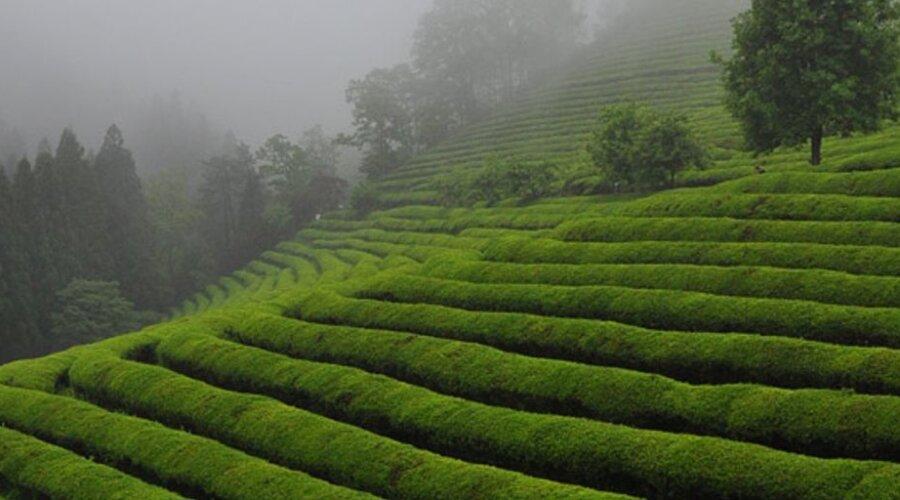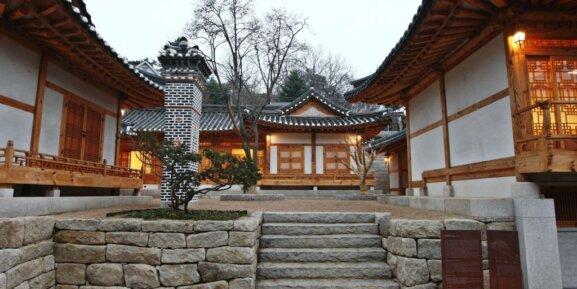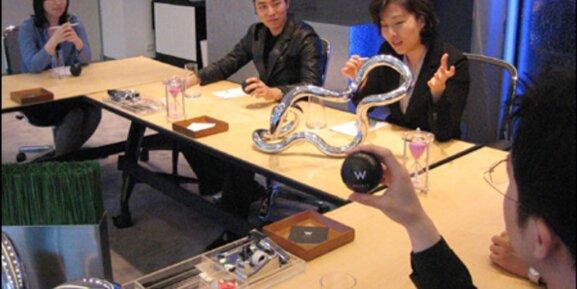“Beyond the Concrete Jungle: Exploring South Korea’s Rural Charms”
South Korea is often associated with its bustling cities like Seoul and Busan, but beyond the concrete jungle lies a world of rural charm waiting to be explored. From breathtaking landscapes to rich cultural experiences, rural Korea offers a unique and enriching experience that contrasts sharply with urban life. Whether you’re wandering through verdant tea fields, staying in traditional hanoks, or hiking majestic mountains, the rural areas of South Korea promise unforgettable adventures.
Key Takeaways
- Rural Korea offers a stark contrast to the bustling urban centers, providing a more authentic and enriching experience.
- Jeollanam-do is home to hidden gems such as the Boseong Green Tea Fields and Suncheon Bay’s ecological wonders.
- Gyeongsangbuk-do boasts cultural and natural attractions like Andong’s Hahoe Folk Village and Juwangsan National Park.
- Jeju Island’s rural areas, including Seogwipo’s waterfalls and traditional markets, offer a serene escape from city life.
- Gangwon-do and Chungcheongbuk-do feature charming villages, tranquil farms, and scenic views, perfect for a peaceful getaway.
Discovering Hidden Gems in Jeollanam-do
Exploring Boseong Green Tea Fields
Boseong is a must-visit for tea lovers. The lush green tea fields stretch as far as the eye can see, offering a serene escape from the hustle and bustle of city life. The vibrant green terraces are a sight to behold, especially during the harvest season. Don’t forget to try some fresh green tea ice cream while you’re there!
Suncheon Bay’s Ecological Wonders
Suncheon Bay is a paradise for nature enthusiasts. The bay is home to a diverse range of flora and fauna, making it a perfect spot for bird watching. The scenic reed fields and the tranquil waters create a picturesque landscape that’s perfect for a leisurely stroll. If you’re lucky, you might even spot some rare bird species.
Traditional Hanok Stays in Gurye
For a truly authentic Korean experience, consider staying in a traditional Hanok in Gurye. These beautifully preserved houses offer a glimpse into Korea’s rich cultural heritage. The peaceful surroundings and the traditional architecture make for a unique and memorable stay. It’s a great way to immerse yourself in the local culture and enjoy some much-needed relaxation.
Jeollanam-do offers a perfect blend of natural beauty and cultural heritage, making it a must-visit destination for anyone looking to explore South Korea beyond the concrete jungle.
The Allure of Gyeongsangbuk-do
Andong’s Hahoe Folk Village
Andong is a city we visit frequently for its awesome cultural heritage sites. One of the most famous is Hahoe Folk Village, a UNESCO World Heritage site. This village offers a glimpse into the traditional Korean way of life with its well-preserved houses and cultural performances. It’s a must-visit for anyone interested in Korean history and culture.
Hiking in Juwangsan National Park
If you’re a nature enthusiast, Juwangsan National Park is the place to be. The park is known for its stunning rock formations, waterfalls, and lush forests. Hiking trails range from easy walks to challenging climbs, making it suitable for all levels of hikers. Don’t forget to bring your camera to capture the breathtaking views!
Yeongdeok’s Coastal Charms
For those who love the sea, Yeongdeok offers beautiful coastal scenery and some of the freshest seafood you’ll ever taste. The area is famous for its snow crab, and many restaurants serve it in various delicious ways. A visit to Yeongdeok is not complete without a stroll along the beach and a seafood feast.
Gyeongsangbuk-do is a region where tradition and innovation blend for memorable adventures. From historical villages to natural wonders, there’s something for everyone to enjoy.
Charming Villages of Gangwon-do
Pyeongchang’s Tranquil Farms
Pyeongchang is not just famous for hosting the Winter Olympics; it’s also home to some of the most tranquil farms in South Korea. Here, you can experience the serene beauty of the countryside, far removed from the hustle and bustle of city life. Whether you’re interested in organic farming or simply want to enjoy the peaceful surroundings, Pyeongchang offers a unique rural escape.
Jeongseon’s Arirang Festival
Jeongseon is renowned for its Arirang Festival, a celebration of traditional Korean music and dance. The festival is a vibrant display of local culture and offers visitors a chance to immerse themselves in the rich heritage of the region. From folk songs to traditional dances, the Arirang Festival is a must-see event that captures the essence of Jeongseon.
Fishing Villages of Samcheok
Samcheok’s fishing villages are a hidden gem in Gangwon-do. These villages offer a glimpse into the traditional way of life, where fishing is not just a livelihood but a way of life. You can stroll through the villages, meet the local fishermen, and even try your hand at fishing. The coastal scenery is breathtaking, making it a perfect spot for a relaxing getaway.
Between Gyeongbokgung and Changdeokgung lies a hillside village of more than 400 hanok – traditional Korean houses. Bukchon is loved by Instagrammers, who often wear traditional hanbok dress when they roll up for photoshoots. The village has a sprinkling of cafes and restaurants as well as shops selling crafts and souvenirs. You can also find traditional teahouses nearby.
Jeju Island’s Rural Heartbeat

Exploring Seogwipo’s Waterfalls
Seogwipo is home to some of the most stunning waterfalls in South Korea. Jeongbang Waterfall is a must-visit, as it’s one of the few waterfalls in Asia that falls directly into the ocean. Another gem is Cheonjiyeon Waterfall, surrounded by lush greenery and offering a serene escape from the hustle and bustle of city life.
Jeju’s Traditional Markets
Jeju’s traditional markets are a treasure trove of local culture and flavors. Dongmun Market is a popular spot where you can find everything from fresh seafood to local handicrafts. Don’t miss out on the street food stalls offering Jeju’s famous black pork and seafood pancakes.
Hiking Hallasan Mountain
Hallasan Mountain, the highest peak in South Korea, offers a variety of hiking trails suitable for all levels. The view from the summit is breathtaking, with panoramic vistas of the island and the surrounding ocean. It’s a perfect way to connect with nature and experience the island’s natural beauty.
Take a moment to meditate and embrace the spiritual ambiance that permeates the air. Hallasan Mountain is a place of inner reflection and tranquility.
Experiencing Chungcheongbuk-do’s Countryside
Danyang’s Scenic Views
Danyang is a hidden gem in Chungcheongbuk-do, offering some of the most breathtaking scenic views in South Korea. Whether you’re exploring the stunning Dodamsambong Peaks or taking a leisurely cruise along the Namhan River, you’ll feel close to nature in every sense. Don’t miss the chance to visit the Gosu Cave, a limestone cave with impressive stalactites and stalagmites.
Cheongpung Cultural Heritage Complex
Step back in time at the Cheongpung Cultural Heritage Complex, where you can immerse yourself in traditional Korean culture. The complex features well-preserved hanok houses, ancient relics, and beautiful gardens. It’s a perfect spot for history buffs and those looking to experience Korea’s rich cultural heritage.
Relaxing by Chungju Lake
Chungju Lake is a serene escape from the hustle and bustle of city life. The lake is surrounded by lush mountains and offers a variety of recreational activities such as boating, fishing, and hiking. It’s an ideal destination for a peaceful weekend getaway, allowing you to unwind and reconnect with nature.
The Serenity of Jeollabuk-do
Jeollabuk-do is a region that offers a peaceful escape from the hustle and bustle of city life. Whether you’re wandering through the historic streets of Jeonju or hiking in the stunning Naejangsan National Park, you’ll find plenty of opportunities to relax and unwind.
Jeonju’s Hanok Village
Jeonju’s Hanok Village is a must-visit destination for anyone interested in traditional Korean culture. There are many things to enjoy in the Hanok Village, such as Gyeonggijeon Hall, Pungnammun Gate, Jeondong Cathedral, and Omokdae. The village is recommended for its well-preserved traditional houses and vibrant cultural experiences.
Naejangsan National Park
Naejangsan National Park is a haven for nature lovers. The park is especially beautiful in the fall when the leaves turn vibrant shades of red and orange. Hiking trails of varying difficulty levels make it accessible for everyone, from casual walkers to seasoned hikers.
Gochang’s Dolmen Sites
Gochang’s Dolmen Sites are a UNESCO World Heritage site and offer a fascinating glimpse into Korea’s ancient history. The dolmens, which are large stone burial markers, date back to the Bronze Age and are scattered throughout the region. Exploring these sites is like stepping back in time and offers a unique perspective on Korea’s rich cultural heritage.
Rural Adventures in Gyeonggi-do
Yangpyeong’s Rail Bike Trails
If you’re looking for a unique way to explore the countryside, Yangpyeong’s rail bike trails are a must-try. Pedal along old railway tracks while soaking in the stunning views of the surrounding mountains and rivers. It’s a fun and eco-friendly way to experience the natural beauty of Gyeonggi-do.
Pocheon’s Herb Island
Pocheon’s Herb Island is a delightful escape for anyone interested in botany or just looking to relax. The island features a variety of themed gardens, a herb museum, and even a small zoo. Don’t miss the chance to make your own herbal soap or enjoy a meal at the herb-themed restaurant.
Icheon’s Pottery Villages
Icheon is famous for its traditional pottery, and visiting its pottery villages offers a glimpse into this ancient craft. You can watch artisans at work, try your hand at pottery-making, and even purchase unique ceramic pieces to take home. It’s a perfect blend of culture and hands-on experience.
Conclusion
So there you have it! South Korea’s rural areas are a treasure trove of authentic experiences, breathtaking landscapes, and warm-hearted people. Stepping out of the bustling cities like Seoul and Busan, you’ll find a Korea that’s rich in tradition, culture, and natural beauty. Whether you’re watching a sunset you thought you’d forgotten about or tasting the best food you’ve ever had, the countryside offers a refreshing escape from the urban grind. So next time you’re planning a trip to Korea, don’t just stick to the concrete jungle—venture out and explore the rural charms that make this country truly special.
Frequently Asked Questions
What are some must-visit rural areas in South Korea?
Some must-visit rural areas in South Korea include Jeollanam-do for its green tea fields and ecological wonders, Gyeongsangbuk-do for its folk villages and national parks, and Jeju Island for its waterfalls and traditional markets.
How can I experience traditional Korean culture in rural areas?
You can experience traditional Korean culture by staying in a Hanok, visiting folk villages like Andong’s Hahoe Folk Village, and exploring cultural heritage complexes such as Cheongpung Cultural Heritage Complex in Chungcheongbuk-do.
What outdoor activities can I do in rural South Korea?
In rural South Korea, you can enjoy hiking in national parks like Juwangsan and Hallasan, biking on rail trails in Yangpyeong, and exploring coastal areas in Yeongdeok.
Is it easy to travel to rural areas from Seoul?
Yes, it is quite easy to travel to rural areas from Seoul. South Korea has an extensive and efficient transportation network, including trains, buses, and domestic flights, making rural areas accessible.
What is the best time to visit rural South Korea?
The best time to visit rural South Korea is during the spring (April to June) and autumn (September to November) when the weather is mild, and the landscapes are particularly beautiful.
Are there any unique festivals in rural South Korea?
Yes, rural South Korea hosts several unique festivals, such as the Jeongseon’s Arirang Festival in Gangwon-do and various local markets and cultural events in Jeju Island.



